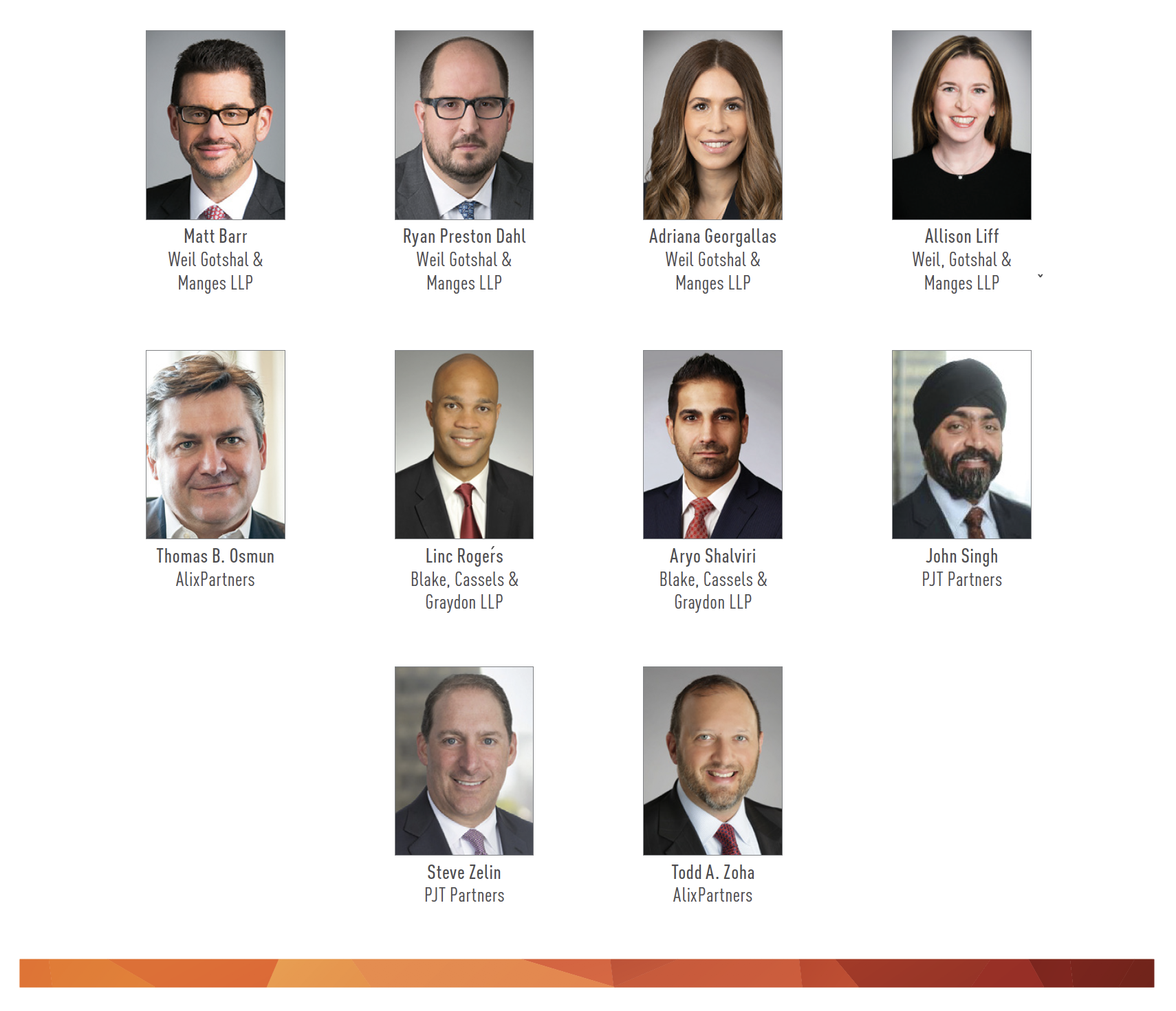
TMA honors excellence through its annual awards program, which recognizes achievements in the categories listed in this issue, plus more. The following awards were presented at IMPACT 2020, which was held virtually September 29–October 1.
Essar Steel India Ltd. (ESIL), India’s fourth-largest steelmaker, has produced steel used in some of India’s most iconic public works projects and many of its most recognizable consumer and industrial products. When ESIL was pushed into insolvency in August 2017—at the time, India’s largest insolvency—the entire country took notice. With outstanding debt of approximately $7 billion (assumed $1 = INR 70) owed to a plethora of India’s top financial institutions, private lenders, foreign investors, and approximately 1,900 operational creditors, not only were the futures of ESIL and its approximately 12,000 employees at stake but so was the viability of the country’s untested Insolvency and Bankruptcy Code (IBC), adopted only a year before.
Alvarez & Marsal (A&M) was selected as advisor to the court-appointed resolution professional, Satish Kumar Gupta. A&M restructuring lead Nikhil Shah, along with steel industry expert Vivek Kamra, assembled a team of 25 operators, consultants, and accountants to manage the insolvency process. Working with ESIL management, led by Managing Director Dilip Oommen and the committee of creditors, they preserved and enhanced the value of the company while maximizing recoveries through an efficient insolvency process.
To address ESIL’s myriad structural and operating challenges, which included unpaid creditors and vendors, acute liquidity shortages, deteriorating physical assets, and plummeting employee morale, the turnaround team conceived a three-phase transformation and solvency plan. First, the team stabilized the company through the implementation of creditor interest moratoriums while negotiating with vendors to ensure ongoing production. The company eventually shifted to a growth strategy that improved profitability through increased throughput and cost restructuring. Eyeing an eventual sale, the turnaround team finally focused on cost optimization, overhauling ESIL’s supply and distribution chains.
After 865 days in insolvency, ESIL emerged on December 16, 2019, with a 25% production volume increase. The company’s ultimate acquisition by ArcelorMittal and Nippon Steel (AM/NS) resulted in more than 85% recoveries by financial creditors and 20% recoveries for operational creditors.

On September 20, 2019, TridentUSA Health Services, the nation’s largest mobile diagnostic health care services provider, completed a successful restructuring, which de-levered the company’s balance sheet by approximately $600 million, saved nearly 5,600 jobs, and preserved Trident’s going-concern operations.
Even after an out-of-court recapitalization in April 2018, which injected $40 million of new money, the company continued to face persistent industry headwinds, which affected customers, required write-offs of significant receivables, increased pressure on reimbursement rates, generated intense capital requirements, and constrained liquidity. In February 2019, Trident and 22 of its affiliates filed for Chapter 11 with approximately $800 million of prepetition debt.
Less than 40 days into the cases the company and its advisors delivered a business plan premised on a “shrink to grow” strategy designed to turn around operations. The plan focused on: (i) right-sizing its footprint to refocus on its profitable operations; (ii) rationalizing its X-ray, lab, and ultrasound service offerings; and (iii) improving collections.
From a legal perspective, Trident’s turnaround story involved the complex intersection of healthcare, finance, and bankruptcy law.
First, secured lenders that had previously consented, as well as the creditors’ committee, challenged the 2018 recapitalization, arguing that it should be unwound. After significant litigation and negotiations, the parties resolved these matters, providing recoveries that included payments to unsecured creditors of nearly 10 times what was originally proposed.
Second, two qui tam relators filed prepetition complaints seeking $489 million under the False Claims Act, alleging that Trident engaged in an illegal “swapping” scheme to price services below cost in exchange for referrals of Part B Medicare business. After weeks of mediation with the
qui tam relators and the U.S. government overseen by the Hon. James Peck, the company settled the claims for $9.5 million and received full releases.
Trident’s Chapter 11 plan was accepted by its secured creditors and by general unsecured creditors on a consolidated basis. The company emerged from bankruptcy and continues to provide essential medical diagnostic services to key customers, ensuring patients’ access to these critical services.
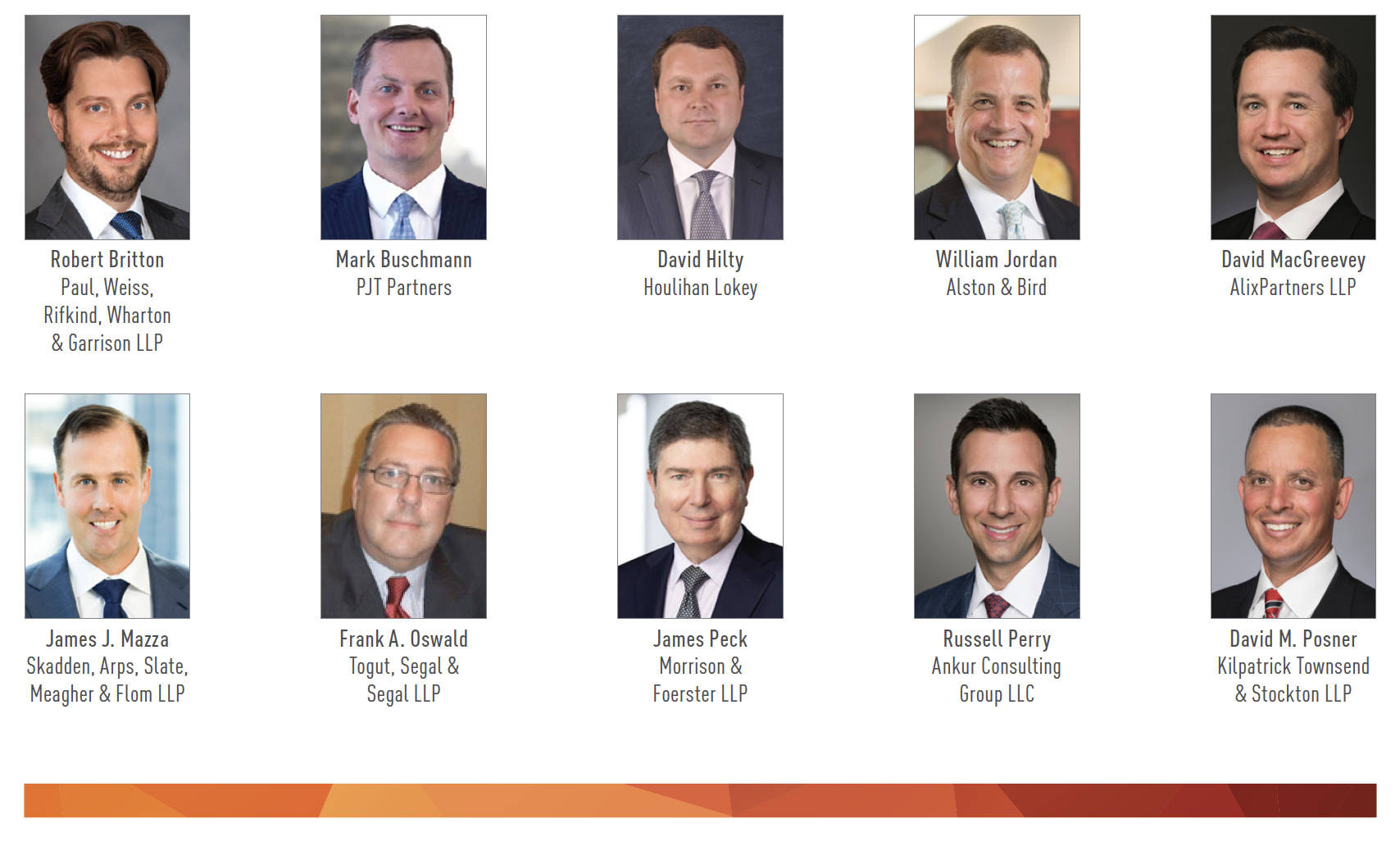
Coordinated Health (CH), a for-profit health network headquartered in the Lehigh Valley, Pennsylvania, comprised healthcare operations (OpCo) of 80 legal entities, 105 physicians, and 1,400 employees responsible for 12,000 patient visits per week, operating from 22 owned properties and three leased facilities across Pennsylvania and New Jersey (PropCo), including medical office buildings, ambulatory surgical centers, physical therapy and imaging clinics, and micro hospitals.
By late 2017, CH struggled to compete with not-for-profit networks, so it sought partnerships with two of these networks to drive expansion for all. CH doubled administrative staff and started construction on two hospitals as the deals were being finalized. In late 2018, the deals fell apart when an ongoing five-year U.S. Department of Justice (DOJ) investigation into CH billing expanded via the False Claims Act, increased a whistleblower action from $300,000 to more than $100 million, and settled for eight figures plus a corporate integrity agreement.
Worsening competitive and creditor pressures made a transaction the best option for all stakeholders, and improved performance made a transaction feasible. Between May and August, 96 institutions were contacted; creditors stood still without court protection; the CRO team took over as lead negotiator; and six term sheets were received. Lehigh Valley Health Network (LVHN), a $2.7 billion, A-rated not-for-profit health network in the same footprint as CH was chosen for the transaction, and the sale closed on December 19.
LVHN provides stability and a well-funded future for CH. At close, LVHN committed to retaining all non-owner/non-family staff, and nearly all physicians accepted new contracts. LVHN purchased all OpCo assets and four of 22 PropCo assets. All lenders holding purchased collateral were paid in full or brought current, with LVHN assuming the debt. LVHN leased the remaining 18 properties. All PropCo lenders holding leased collateral were brought current and now have an A-rated tenant as credit enhancement. The DOJ and physicians were paid in full. Unsecured creditors of OpCo were paid in the range of 70-100%. Equity retained ownership of the 18 leased properties, which are now all stabilized.
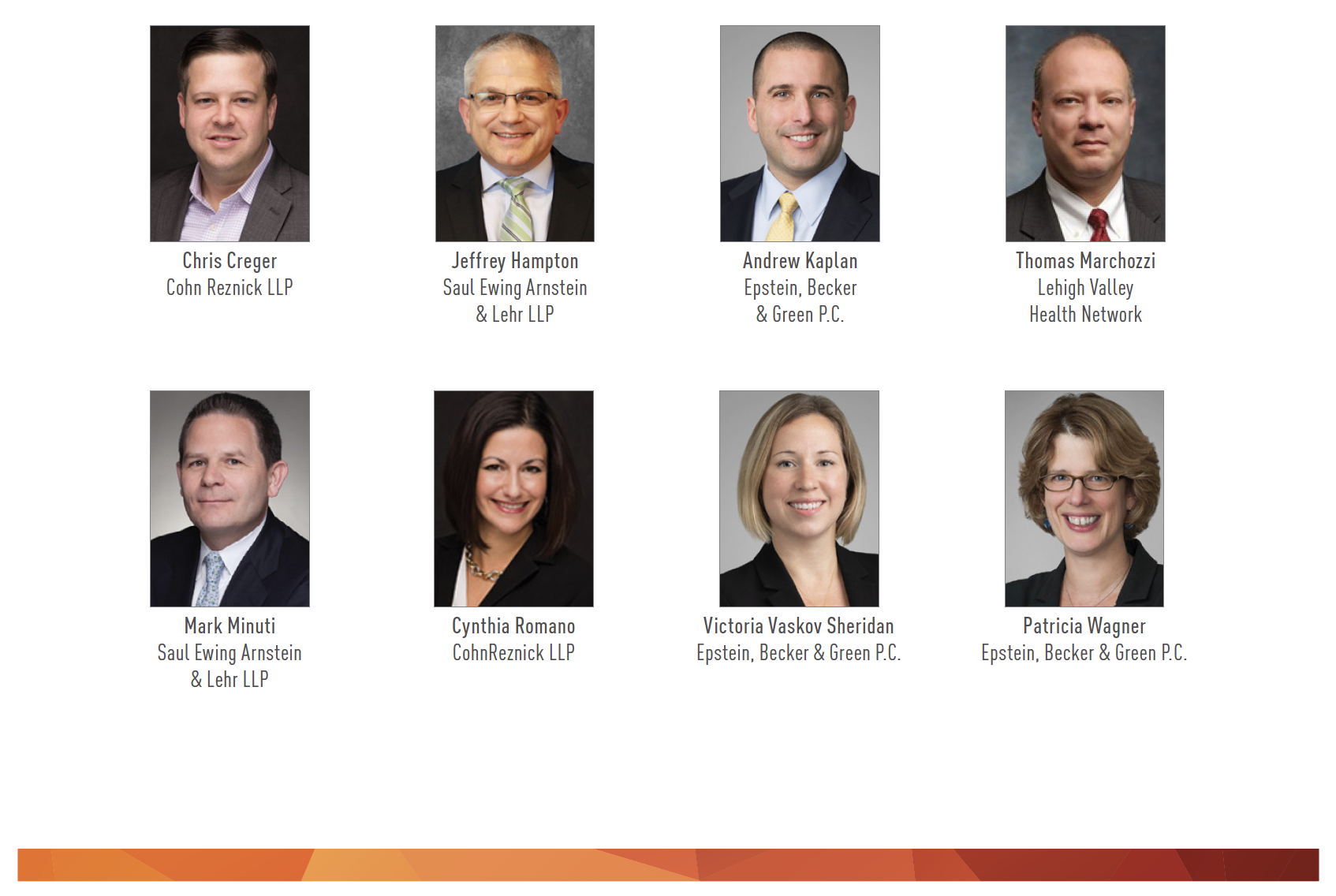
The restructuring of VEBA, a traditional Czech textile manufacturer, was one of the largest and most complex insolvency cases resolved by reorganization under the Czech Insolvency Law in recent years. A sudden and significant drop in sales in key African markets resulted in over-indebtedness and subsequent illiquidity, threatening to cause a suspension of production and mass layoffs (850 employees) in a remote region of the country with limited alternative employment opportunities.
The skilled team of advisors succeeded in identifying an investor, who stepped in just as an insolvency petition was filed by a creditor. The transfer of ownership, debt restructuring, and consolidation of assets within the group was ultimately realized via a prepack reorganization. This enabled VEBA to avoid imminent bankruptcy and offered both secured and unsecured creditors a higher level of claim recovery.
Following the successful fulfillment of the reorganization plan, VEBA rationalized its operations and faces favorable growth prospects.

Communities Inc., d/b/a The Barrington of Carmel, is a not-for-profit corporation that owned and operated a continuing care retirement community (CCRC) and provided a wide range of services to more than 250 elderly residents in Carmel, Indiana. Barrington and its largest creditor, UMB Bank, N.A., as bond trustee, were parties to a series of bond documents secured by liens on substantially all of Barrington's assets.
Prior to the petition date, Barrington defaulted on its payment obligations under the bond documents, and the bond trustee commenced a receivership action. To maintain control over its operations for the benefit of its residents and creditors, Barrington commenced a Chapter 11 case. Shortly after filing, Barrington and the bond trustee reached a consensual resolution that provided for, among other things, a sale of the debtor’s facility. Barrington was sold to another not-for-profit CCRC operator for $61 million, and all resident obligations were honored.
Incorporated in 2006, Tarrant County Senior Living Center Inc., d/b/a The Stayton at Museum Way, is a not-for-profit corporation that has built a best-in-class CCRC in Fort Worth, Texas. As is common in the senior living industry, Stayton has historically faced financial challenges, the effect of which threatened its ability to honor its long-term debt obligations and maintain operational stability.
To address its financial condition, Stayton engaged in extensive, arm’s-length negotiations with (a) SQLC; (b) Lifespace Communities, Inc., Stayton’s current not-for-profit sole corporate member; (c) UMB Bank, N.A., as successor bond trustee and successor master trustee; and (d) the holders of at least 67% of outstanding aggregate principal amount of all bonds issued. Its goal was to achieve a consensual restructuring centered on refinancing its existing tax-free municipal bond debt, totaling approximately $105 million, through a prepackaged restructuring.
With overwhelming support from its bondholders, Stayton commenced its Chapter 11 case and confirmed its plan of reorganization in just 45 days. Stayton closed on the refinancing transaction, all obligations to unsecured creditors were paid in full, and resident contracts were assumed.

Founded 50 years ago, Solidal is a leading power cable manufacturer with a production facility north of Porto, Portugal. It supplies cables to transmission and distribution companies, contractors, and wholesalers around the world.
In early 2018, persistent payment delays to suppliers led to the removal of credit insurance. The lack of liquidity, with no financial support from the banks, hampered raw materials purchases, and production progressively dwindled to a crawl. The company missed payroll for its 363 employees in July 2018 and was on the verge of insolvency when its senior creditor, Njord Partners, approached the controlling shareholders to negotiate terms of a rescue financing.
The financing and change of control were achieved via a consensual restructuring with shareholders. This involved a series of complex transactions lasting through December 2019 that included the seminal use of the Portuguese RERE (Regime de Recuperação Especial de Empresas) procedure for restructuring approximately €28 million of local sale/leaseback and revolving facilities, and the consensual restructuring of another approximately €16 million of bank facilities and factoring lines in Spain and Portugal.
Njord Partners implemented rigorous liquidity management procedures with the support of EY in a CRO role. The team stabilized relationships with key stakeholders, including clients, suppliers, workers, and lenders. These efforts preserved a vast majority of the orderbook intact, allowing production to catch up and delayed orders to be eliminated over four months. AlixPartners developed new procedures around sales and operations planning procedures and the supply chain.
The supervisory board was dissolved and a new management team was formed. Njord Partners appointed acting CRO Francois Moufflet as the new CEO. In turn, he recruited a new director of production and newly formed the position of supply chain director.
Recurring EBITDA in 2019 was €5 million compared to €22.9 million in 2018. The company’s backlog is at its highest historical level, at about four months of sales.
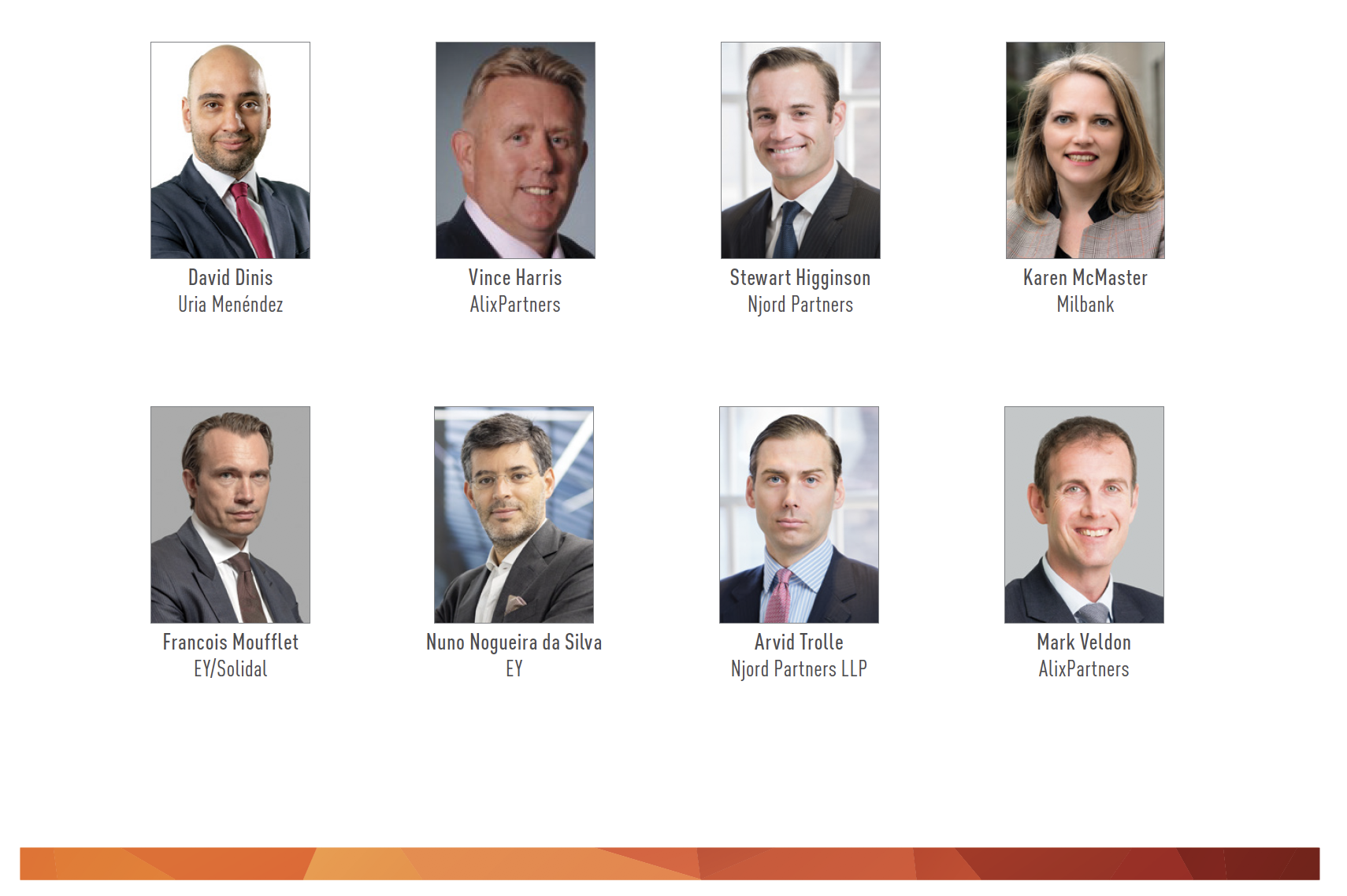
iHeartMedia is a leading global multiplatform media, entertainment, and data company, and the largest radio broadcaster in the United States. The company specializes in radio, digital, outdoor, mobile, social, live events, on-demand entertainment, and information services for local and national communities.
The company had consolidated debts of more than $20 billion stemming from a $27 billion leveraged buyout that closed six weeks before Lehman Brothers’ collapse in 2008. Its Chapter 11 cases, which were the largest of 2018 based on outstanding debt, restructured more than $16 billion of that debt. In connection with its restructuring, iHeart reached agreement with holders of more than $11 billion of debt and its financial sponsors—reflecting widespread support across the capital structure—regarding a comprehensive balance sheet restructuring that reduced iHeartMedia’s debt by more than $10 billion and separated iHeart's business from Clear Channel Outdoor Holdings, a $1.7 billion publicly traded company that did not file for Chapter 11 and was owed approximately $1 billion from the debtors.
Kirkland & Ellis, Alvarez & Marsal, and Moelis & Company led a team that designed, negotiated, and implemented a restructuring transaction that delivered value to every class of creditors and equity holders, including approximately $500 million of value to junior stakeholders. Each class entitled to vote overwhelmingly favored the plan.
The plan also provided for the separation of iHeart’s business from Clear Channel’s business pursuant to a comprehensive multiparty settlement that contemporaneously resolved non-bankruptcy court litigation with certain of Clear Channel’s minority shareholders. The settlement was ratified by independent directors at both iHeart and CCOH, and was effectuated through a novel use of the class action rules. It was approved by both the U.S. Bankruptcy Court and the U.S. District Court for the Southern District of Texas, sitting in tandem.

Aceto Corporation, founded in 1947, was an international developer, marketer, seller, and distributor of human health products, pharmaceutical ingredients, and performance chemicals. In April 2018, with looming debt maturities, a large asset impairment, and disappointing operating results, the company’s board of directors, working with outside counsel Lowenstein Sandler LLP, invited AlixPartners’ Rebecca A. Roof to become interim CFO through AlixPartners’ affiliate AP Services Inc. (APS) to succeed the previous CFO, who had resigned.
Over several months, the company and its advisors negotiated covenant relief from secured lenders, assessed the company’s financial performance, and evaluated strategic alternatives for its businesses. Ultimately, they determined that all of the company’s assets should be marketed and sold through separate transactions for the pharmaceutical operations (Rising) and the chemical operations (Chemicals) in a Chapter 11 Section 363 sale process.
Critical to maximizing value for all stakeholders, the transactions were structured to crystallize and preserve significant net operating losses at Rising to offset virtually all of the taxable gain from the Chemicals sale. The decision provided stability and deep capital resources to both Rising and Chemicals, ensuring the continuity of employee, customer, partner, and supplier relationships.
In February and early March 2019, the company entered into two stalking horse purchase agreements to (1) sell Chemicals’ assets for $338 million in cash (subject to certain adjustments); the assumption of certain liabilities, including all trade obligations; and the continued employment of most employees and (2) sell Rising’s assets for $15 million in cash and the assumption of certain liabilities, including trade obligations, of up to $122 million. A competitive bankruptcy auction for Chemicals led to an increased sale price of $422 million from $84 million.
Proceeds from the sales satisfied all of the company’s $237 million in secured debt. Approximately $200 million remained in the estates for distribution to other stakeholders through the development and negotiation of a Chapter 11 plan. Recoveries for unsecured creditors increased from an initial low-case disclosure statement estimate of approximately 70% to an initial distribution of 88%, with the possibility of paying all creditors in full and conceivably providing a return to equity.
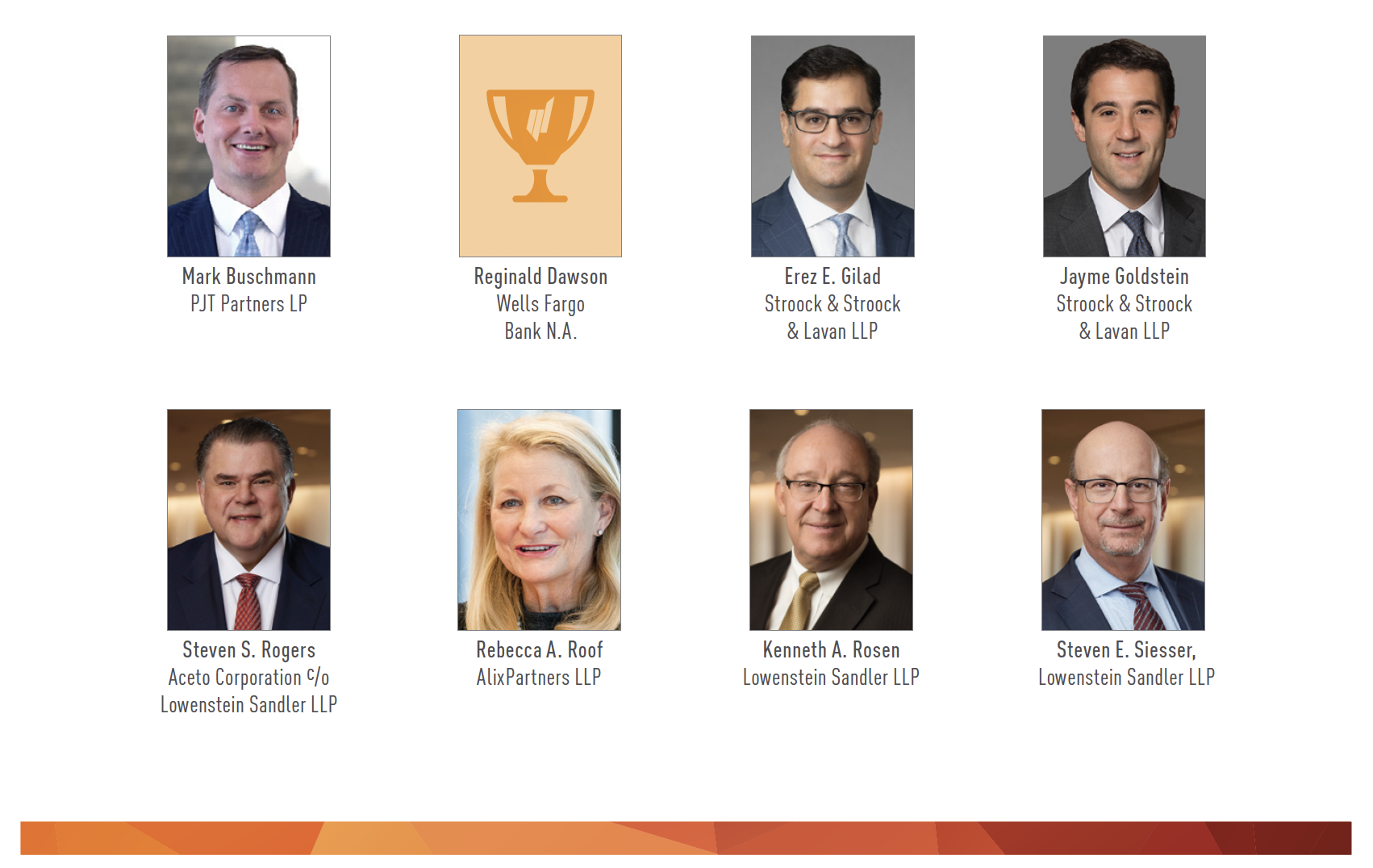
The restructuring team at Amherst Partners was initially recommended as a financial advisor to Beach Mold & Tool by the company’s lender, Wells Fargo Bank. Upon being engaged, Amherst determined that the company was insolvent, and operational losses were continuing to increase as time went on. These conditions ultimately proved serious enough for Wells Fargo to require Amherst to assume the role of CRO, at which point Wells Fargo also mandated a sale of the entity.
Rather than follow the path of pure liquidation, which can often be the case with distressed businesses, Amherst first was able to facilitate the sale of an underperforming division located in Virginia. The division was, at the time, responsible for the majority of the company’s continuing losses, which were consuming all positive cash flow generated by the remaining division located in New Albany, Indiana.
At the same time, Amherst, acting as CRO, implemented an aggressive financial and operational restructuring plan at the New Albany facility. This included on-site cash management, operational restructuring, vendor negotiations, and management of customer relationships, including working with OEMs to ensure they would not re-source work to other suppliers, thus creating further difficulties for the company.
This work to stabilize the company, address systemic issues that had resulted in its significant losses, and demonstrate the business’s potential value to prospective buyers paved the way for the successful sale of the business to Michigan-based NYX Inc. Upon closing the transaction, NYX created a new operational entity, NYX New Albany, thus keeping the entity in the community.
The results of the transaction were: 1) all existing jobs were preserved, and new positions were created; 2) all secured and unsecured creditors were paid in full; 3) all professionals were paid in full; and 4) the final sale price exceeded the full payout to the creditors. Thus, Beach Mold & Tool equity shared in the proceeds and also maintained ownership of the facilities, which provide ongoing rental revenues.

The Champaign County Nursing Home served local residents for more than 150 years, having begun as the "poor farm" and later evolving into a 243-bed skilled nursing facility. Once the first choice of county residents requiring nursing and rehabilitation services, it devolved over a number of years into a trouble-plagued facility beset by management, financial, and operational problems.
By 2016, the home had fallen into a deep financial crisis, requiring county board action to make payroll. A new county administrator was appointed and began investigating the home’s operations and researching future options. Seven options, ranging from an increased subsidy to closure, were put on the table. In the end, the sale of the home was the only feasible option that both ensured the preservation of the Medicaid beds and prevented a financial disaster for the county and its taxpayers. In a referendum, county voters opted not to provide any further subsidy and instead authorized the county board to pursue a sale if conditions warranted doing so.
To stabilize the home and prepare it for a disposition, the county selected a new management company, SAK Management Services, which began its tenure in July 2017. The departure of the previous management company was not amicable, however, and required urgent action by SAK to stabilize the home. These actions included addressing two separate immediate jeopardy citations and dealing with a mountain of angry vendors and unpaid bills. Over the course of the next year, SAK embarked on a remarkable turnaround that restored financial transparency, rebuilt census, implemented massive reductions in cost, and restored nursing staff.
The efforts enabled the county to engage a broker and successfully conclude the sale and transfer of operations to a private company for $11 million (later reduced to $9.6 million), maintaining the facility as an operating entity and preserving the large pool of Medicaid beds for county residents. The county was able to pay off much of its accumulated debts and bonds.

Headquartered in Michigan, with a Dutch holding company and more than 100 facilities across 20 countries and six continents, Syncreon is a global logistics services provider to technology and automotive manufacturers.
The landmark cross-border restructuring of syncreon Group Holdings B.V. was effectuated through English schemes of arrangement for its Dutch subsidiary, syncreon Group B.V., and its English subsidiary, Automotive (UK) Ltd., paired with Chapter 15 recognition in the
U.S. and CCAA (Companies’ Creditors Arrangement Act) recognition in Canada. It was reportedly the first-ever use of an English scheme to restructure debt issued by a U.S.-based global enterprise and the first time that CCAA recognition of an English scheme has been granted. This scheme now provides global companies with a blueprint for using English courts to avoid protracted cross-border insolvency proceedings when U.S. courts would face jurisdictional hurdles. The restructuring was commenced in July 2019 and completed in approximately eight weeks. It reduced syncreon's $1.1 billion of funded debt by $690 million, while enabling the business and its 14,000 employees to operate without disruption. The company also raised an incremental $125.5 million in liquidity from an ad hoc group of lenders to support ongoing operations.
